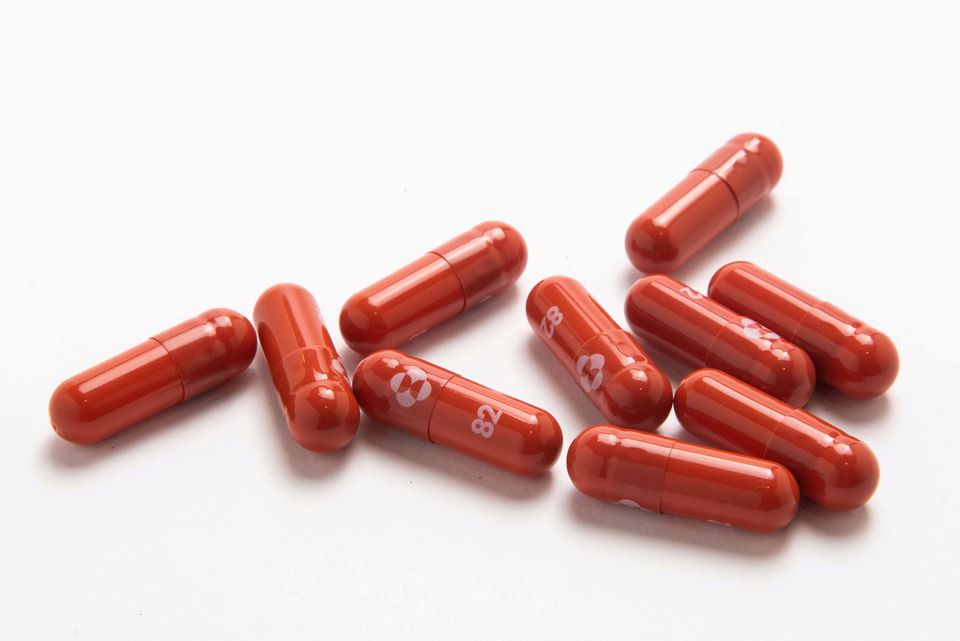Merck & Co said on Friday updated data from its study of its experimental COVID-19 pill showed the drug was significantly less effective in cutting hospitalizations and deaths than previously reported.
The drugmaker said its pill showed a 30% reduction in hospitalizations and deaths, based on data from 1,433 patients. In October, its data showed a roughly 50% efficacy, based on data from 775 patients. The drug, molnupiravir, was developed with partner Ridgeback Biotherapeutics.
The lower efficacy of Merck's drug could have big implications in terms of whether countries continue to buy the pill.
Interim data from 1,200 participants in Pfizer Inc's trial for its experimental pill, Paxlovid, showed an 89% reduction in hopsitalizations and deaths.
Merck's shares fell 3.5% to $79.39 in morning trading.
Merck released the data before the U.S Food and Drug Administration published a set of documents on Friday intended to brief a panel of outside experts who will meet on Tuesday to discuss whether to recommend authorizing the pill.
The agency's staff did not make their own recommendation as to whether the pill should be authorized.
FDA staff asked the panel to discuss whether the benefits of the drug outweigh the risks and whether the population for whom the drug should be authorized should be limited.
They also asked the committee to weigh in on concerns over whether the drug could encourage the virus to mutate, and how those concerns could be mitigated.
Pills like molnupiravir and Paxlovid could be promising new weapons in the fight against the pandemic, as they can be taken as early at-home treatments to help prevent COVID-19 hospitalizations and deaths. They could also become important tools in countries and areas with limited access to vaccines or low inoculation rates.
Easier treatment
The Merck and Pfizer pills are cheaper to produce and easier to administer than existing treatment options such as antibody therapies from Regeneron and Eli Lilly, which are mostly administered as intravenous infusions.
The two experimental drugs have different mechanisms of action. Merck's is designed to introduce errors into the genetic code of the virus.
Pfizer's drug, part of a class known as protease inhibitors, is designed to block an enzyme the coronavirus needs in order to multiply.
Merck filed for a U.S. authorization of molnupiravir on Oct. 11, following the interim data, and submitted the updated data to the FDA this week.
The molnupiravir arm of the study had a hospitalization and death rate of 6.8%, according to the updated data. The placebo group had a hospitalization and death rate of 9.7%.
One patient in the molnupiravir arm died, versus nine in the placebo group.
The United Kingdom conditionally approved molnupiravir, branded as Lagevrio, earlier this month.
Merck expects to produce 10 million courses of the treatment by the end of this year, with at least 20 million set to be manufactured in 2022.
It has a contract with the U.S. government to supply as many as 5 million courses at a price of $700 per course. Several other countries have already secured millions of courses of the pill.
Merck has said data shows molnupiravir is not capable of inducing genetic changes in human cells, but men enrolled in its trials had to abstain from heterosexual intercourse or agree to use contraception. Women of child-bearing age also had to use birth control.
Still, the FDA said in its briefing document that there are safety concerns about potential birth defects from the drug and asked the panel to discuss whether the drug should be available to pregnant women.




















































